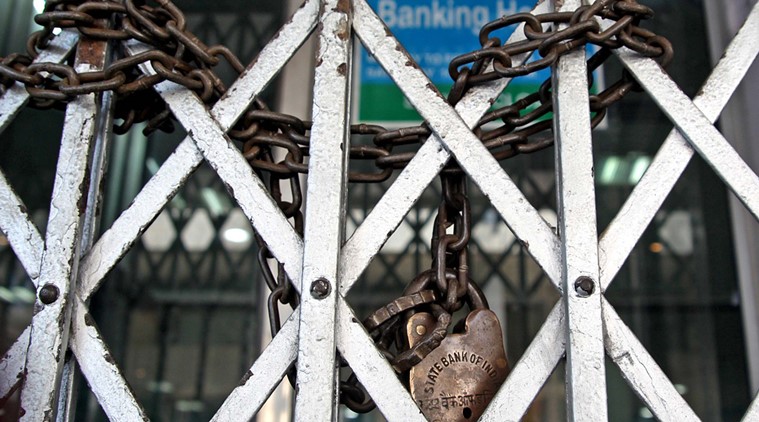
Nine bank unions joined together and organized a nation wide strike on 29th July,2016, which crippled the banking operations all over India. After the one day strike, the bank unions claimed that around one million bank employees joined the strike and it was a grand success. What do these unions mean by success? Do they mean that crippling the bank operations resulting in several millions of rupees of national loss and causing untold hardships to millions of customers and business enterprises is the barometer of what they call as success?
What purpose for the strike ?
The bank unions went on strike on 29 th July primarily on three accounts, namely to protest against the merger of subsidiary banks with State Bank of India , to oppose government’s move to dilute it’s equity stake in the loss incurring government owned IDBI bank from 78.5% to 49% and to demand that the bad loans must be recovered by the banks. The question is as to whether these demands justify a nation wide strike, that virtually crippled the economy of the country for a day. The weapon of strike which should be the ultimate weapon is being used in a light hearted manner.
The move of the government of India to merge the subsidiary banks with State Bank of India and dilute it’s equity in IDBI bank are policy decisions taken by popularly elected government based on it’s wisdom and it’s view that such measures are needed to improve the efficiency of the banks and improve it’s operations. If there would be different view point on the action of the government , then it is for the Indian parliament to decide the course of action by discussions and even by voting, if necessary. How can the bank employees demand that such policy decision of the government should be taken only with the concurrence and approval of the bank employees and as per their wishes?
There are many stake holders in the banking system apart from the government . For example, State Bank of India is owned by the government of India only to the extent of around 59% of equity holding and the rest is held by others such as insurance companies, mutual funds, individuals etc. Bank employees who work in the bank getting monthly wages and whose interests are only short term during their period of employment in the bank, should leave it to the stake holders who have long term interests and parliament to decide on the matter.
Going on strike for such reasons amount to abuse of privileges that are enjoyed by the unions due to their collective bargaining strength.
What concept for trade union movement ?
When Karl Marx advocated the need for the struggle by the work men to save themselves from exploitation and improve their living conditions, obviously he had in his mind poor and deprived work men and not the type of bank employees that we have today.
The bank employees at various level who are paid high salaries apart from being provided with several other benefits and perks cannot be considered, by any stretch of imagination, as deprived people that Karl Marx thought about. In India , bank employees are now privileged class of citizens and one may be justified in concluding that their forming unions and terming them as trade union activity is an anachronism.
Look at the contrast between the white collar bank employees who claim trade union rights and more than 20% of Indian population ( more than 250 million people ) who are blue collar workers living below poverty line and not knowing as to where their next meal would come from. Karl Marx only had such deprived blue collar workers in mind when he said that “workers have nothing to lose except the chains”
Are the bank unions democratic in their decisions ?
When the bank unions call for strike, all the employees respond to the call even if some may feel that such call for strike could be unnecessary. In the case of the strike on 29th July, many bank employees might have been unhappy about the strike decision but still participated due to the fear of the union leadership, who are mostly associated with one political party or the other and have iron like grip over the activities and decisions.
In countries like Japan, England and others, before issuing a strike call, the unions would seek the opinion of the members about organizing the strike, by conducting secret ballot. Such secret polls are never conducted in India by the bank unions. Possibly, , if such secret poll would have been conducted on 29th July strike decision, substantial number of bank employees, who have no particular political affiliation and are only concerned about their work, might have voted against organizing the strike.
It is high time that trade unions in India, particularly bank unions, should do careful self appraisal and take a relook at their priorities and activities , so that the spirit of Karl Marx would not be disappointed.
